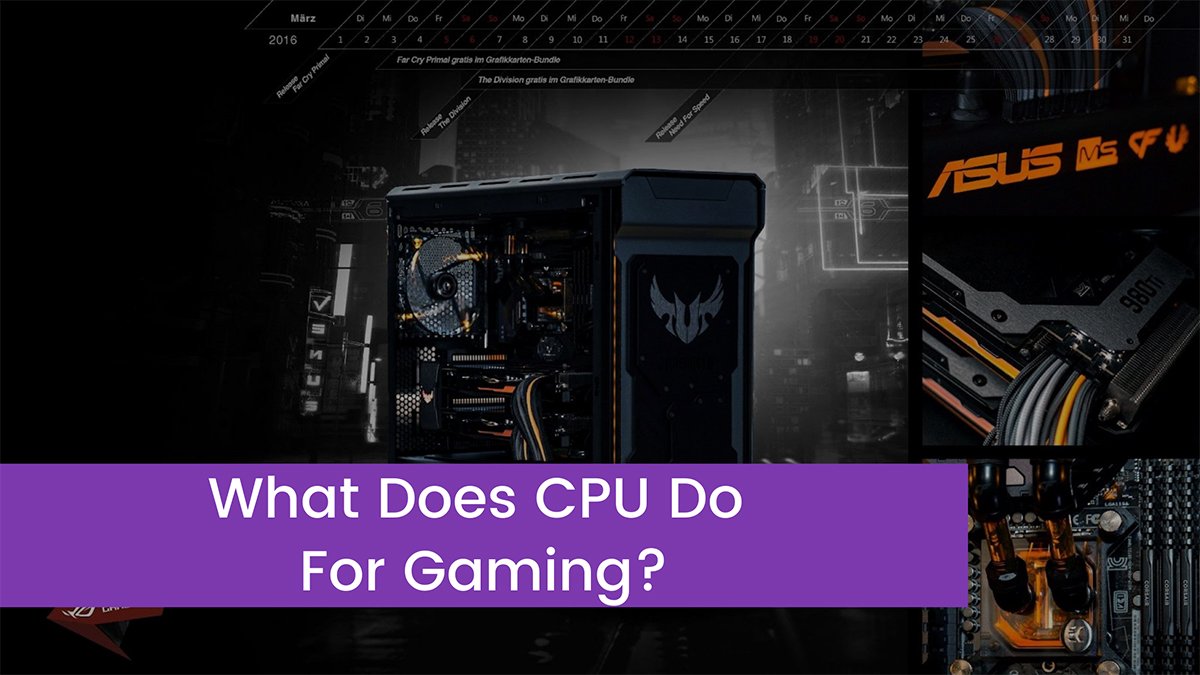The CPU (Central Processing Unit) is the computer’s brain. It is also referred to as a processor, and its primary function is to manage, process, and execute commands. Again, that definition appears to be a little hazy. That is why the CPU performs numerous functions, each of which is difficult to define in a single sentence.
Just consider this example, If your computer were a company, the CPU would be the CEO. It controls all of the computer’s other components and completes the task. Again, this is an oversimplified definition, but for this article, we’ll stick with it.
CPUs and Cores
If you’ve heard of CPUs, you’ve probably heard the term “core” as well. In essence, a core is found in the processor itself. It is only capable of focusing on one task at a time. Here’s something to keep in mind: regardless of how fast the processor is, it can only perform one task at a time.
As the number of cores on a computer increases, so does its speed. The strength of the core is also essential. The IPC is a metric that determines how strong a core is (Instructions Per Cycle). IPC is a points-based system for determining how fast a processor is. It determines how many instructions a processor can process in a given amount of time. A high IPC score is desired.
Gaming necessitates a high level of core strength. In today’s games, two or four cores are used. Even if the processor has more cores, they are unable to use them. As a result, you’ll need powerful cores that can render games with only a few of their cores.
There are now games that use multiple cores, and more developers are optimizing their games to use multiple cores. It is, however, still a work in progress. As a result, even today, most games (including those with a lot of graphics, visuals, and other features) only use two to four cores.
Gaming And CPU
Now we know that we need more cores, let’s take a closer look at what a CPU does in terms of gaming. Without getting too technical, let me say this: the GPU isn’t knowledgeable. It is speedy at completing tasks, but it has no idea what needs to be done. Instructions are required. And, as you might expect, the CPU directs the GPU’s actions.
That is only the start. The CPU handles everything that isn’t visuals or graphics. There is audio. But that isn’t the case. We look at how different specifications of CPUs affect gaming in our i3 vs. i5 vs. i7 comparison.
When you shoot someone, however, the damage is calculated by the CPU. If any of your teammates are controlled by a computer, the CPU will tell them where to go. Yes, it is executed by the GPU. However, the CPU is the one who decides where that team member should go.
The CPU is also in charge of controlling and processing inputs. When you move your mouse to aim and press the fire button, the CPU determines how much movement is required. It recognizes that you’ve activated the fire button. It calculates how much ammo you’ve lost in your arsenal.
It also calculates the opponent’s damage while accepting additional inputs at the same time. In a game, there are numerous statistics. All of this is kept track of by the CPU. The CPU controls and manages everything that isn’t visual, including collision detection, saving, respawning, AI, and the user interface.
It also instructs the GPU on what to do. The GPU is in charge of carrying out the CPU’s commands. So, in a nutshell, the CPU is in charge of the game and your gaming experience.
Now, if you think you’d need a supercomputer to accomplish all of this, you’d be wrong. We often have a misunderstanding about how fast and powerful a processor or CPU is. Except for the most recent Call of Duty game, you can play any call of duty on a two-core processor. That’s how good processors can be when your PC is perfectly tuned for gaming.
What is the best CPU to buy for gaming?
In the processor industry, there are now only two real players. The two leading processor manufacturers are Intel and AMD. Gaming processors from Intel are incredible. AMD gaming processors, on the other hand, have been rapidly catching up in recent years.
We’ve put together a list of the best gaming processors available. You can see the entire list here. In other words, if you’re looking for a CPU for your gaming rig, make sure it has at least four cores. In terms of gaming, Intel outperforms AMD. There isn’t much of a difference between them, but there is one.
However, if you do a lot of video editing, streaming, 3D animation, and other similar tasks, AMD is far superior to Intel. The multi-threaded performance of AMD processors far outweighs the loss in gaming performance. As you can see, AMD produces the majority of the best streaming processors.
Does The CPU Have An Impact On FPS?
The frames per second refer to the available hardware and specifications. When playing a game, having a higher frame rate means being able to control the game better. It has a good graphics engine that will help you achieve the best results.
conclusion
We conclude the above article by saying that the CPU is the essential factor to consider in computer configuration. The CPU is made up of various peripherals, ranging from a processor to a graphics card. A CPU becomes responsible for every action in a computer with the help of high-end specifications.
It can always provide adequate support for your gaming needs and improve graphics. You won’t be able to use an additional GPU unless you have a good CPU. Please let us know how your CPU is doing and how it is helping your CPU.


![Read more about the article [2023] How To Make Charcoal In Minecraft?](https://wuschools.com/wp-content/uploads/2022/05/Make-Charcoal-in-Minecraft-300x169.jpg)

